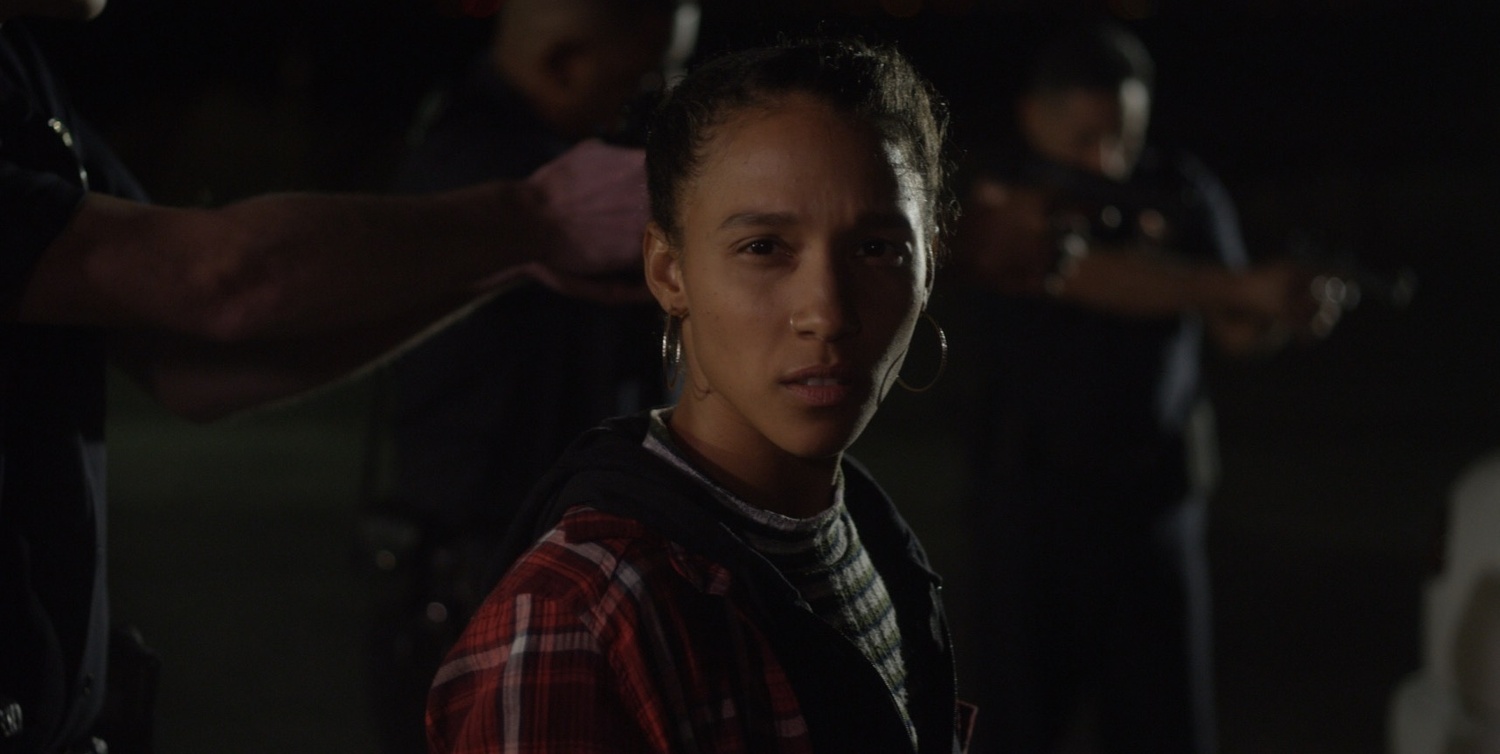
News
Garber Privately Tells Faculty That Harvard Must Rethink Messaging After GOP Victory

News
Cambridge Assistant City Manager to Lead Harvard’s Campus Planning

News
Despite Defunding Threats, Harvard President Praises Former Student Tapped by Trump to Lead NIH

News
Person Found Dead in Allston Apartment After Hours-Long Barricade

News
‘I Am Really Sorry’: Khurana Apologizes for International Student Winter Housing Denials
‘My Name is Myeisha’ Erratic but Resonant
3/5 STARS—Dir. Gus Krieger

On Dec. 28, 1998, a 19-year old black woman fell asleep in her aunt’s car after getting stuck in a gas station with a flat tire. Foaming at the mouth in an apparently comatose sleep, and with a gun in her lap, she was shot in her car at least 12 times by police officers who were never prosecuted. Her story parallels those of many other black victims of police brutality. Her name was Tyisha Miller. Sound familiar?
Inspired by the events surrounding Miller’s death, “My Name is Myeisha” is director Gus Krieger’s adaptation of Rickerby Hinds’ play “Dreamscape.” An entry in the Boston Underground Film Festival, the film follows the three separate, juxtaposed narratives of Myeisha sleeping in the car, Myeisha stuck in a warped combination of the sunken place from “Get Out” and her own subconscious sleep, and snippets of Myeisha’s life. “My Name is Myeisha”’s overuse of original elements and unoriginal use of familiar tropes take from Myeisha’s story, but cannot detract from Myeisha herself.
“Just so you know, this ain’t gonna be one of them feel-good shows. Just so you know,” Myeisha warns at the start of the film, one of many obvious statements that come to characterize the movie. “My Name is Myeisha” resorts to familiar tactics to navigate the racial politics of police brutality. “Man, I wish I was a white girl,” Myeisha laments. Krieger then cuts to a white couple whose All Lives Matter rhetoric feels tired. “Actually, cops kill more white people than black,” the blonde, blue-eyed woman says, completely missing the point. Myeisha’s retort that the police’s responsibility is “to protect and to serve, written in black and white, right?” falls on deaf ears. Instead of letting the events of Myeisha’s murder speak for themselves, Krieger shirks subtlety in an overtly unproductive way.
Krieger’s lack of subtlety takes from the world he tries to create as well. Set in the ‘90s, “My Name is Myeisha”’s attempts to criticize the objectification of women read like Krieger pandering to today’s audience. When Myeisha and her friends are invited to star in a music video, they jump at the opportunity to get their 15 minutes of fame. But when the resulting video features only the women’s dancing backsides, Myeisha scoffs at their oversexualization. The point Krieger is trying to make is important, but the methods he uses to tell it feel too overplayed to strike a loud enough chord. The explicit social criticism doesn’t ring in Myeisha’s voice, but rather in a voice that feels more like Krieger’s unsuccessful integration of his “woke” agenda.
The film plays with repetition to the point of near incongruity in what is the film’s most obvious innovation: “My Name is Myeisha” is a tragic adaptation of a true story, but it is also a beatboxing, spoken word-based musical. John Merchant, who plays various characters throughout the movie including a strange man who assaults Myeisha, a policeman, and a coroner, alternates too quickly between speaking his lines and beatboxing. His beatboxing breaks the dialogue in a way that pulls viewers out of the movie, at which point they feel slapped into the film. The film loses its power most in these moments, when it ceases to feel like a musical and veers toward the nonsensical. While the interspersed dancing and music feel fresh, the constant beatboxing and repetition of the spoken-word verses become distracting as Krieger over-employs these tools.
One such verse evokes Myeisha’s helplessness. “Ever have one of those dreams where nothing comes out when you try to scream?” she asks at different moment throughout the film. Myeisha’s fate may be sealed, but Rhaechyl Walker’s performance infuses the character she plays with an undeniable humanity. The film hinges on Walker’s portrayal of Myeisha as the unquestionable star, and she does not disappoint. From the choreography Walker seamlessly executes to her delivery of Myeisha’s spoken-word poetry, Walker makes Myeisha and all her quirks familiar to us in a way that does not feel forced.
“This is Myeisha. You know me,” Myeisha confirms as the film nears its tragic end. Indeed, the film succeeds not as a retelling of Myeisha’s story, but more as an introduction to Myeisha, the person. Krieger paints a nonlinear mosaic of a story that, when pieced together, make up who Myeisha is. And while the snippets themselves are not unique to Myeisha—hasn’t everyone struggled with the awkwardness of puberty and the thrill of first love?—the youth with which Walker portrays them breathe life into her character. As she shuffles around in braces to treat both her scoliosis and her crooked teeth, as she enjoys the delight of filling out a bra for the first time, as she recounts her less-than-fantastic first time having sex, Krieger reframes Myeisha not as a victim, but as a young woman whose life was just about to flourish but was ultimately cut short in a situation that has become all too commonplace.
—Staff writer Mila Gauvin II can be reached at mila.gauvin@thecrimson.com.
Want to keep up with breaking news? Subscribe to our email newsletter.
